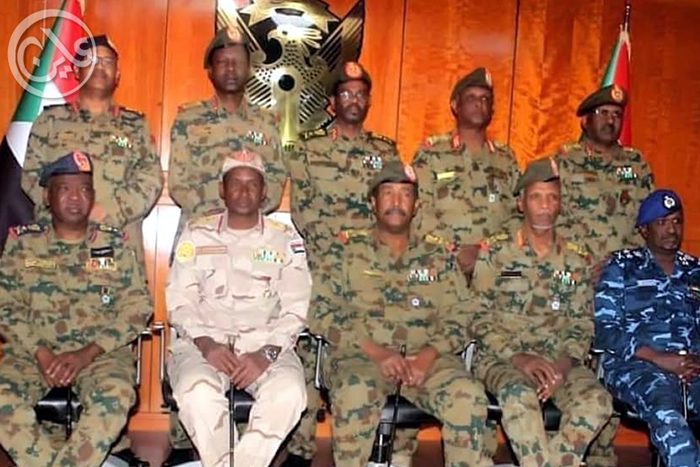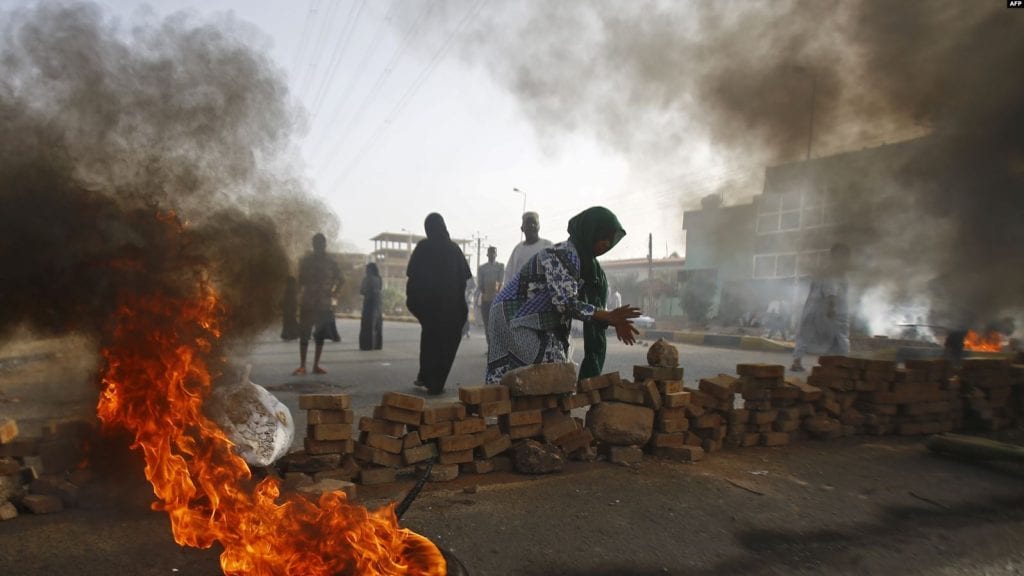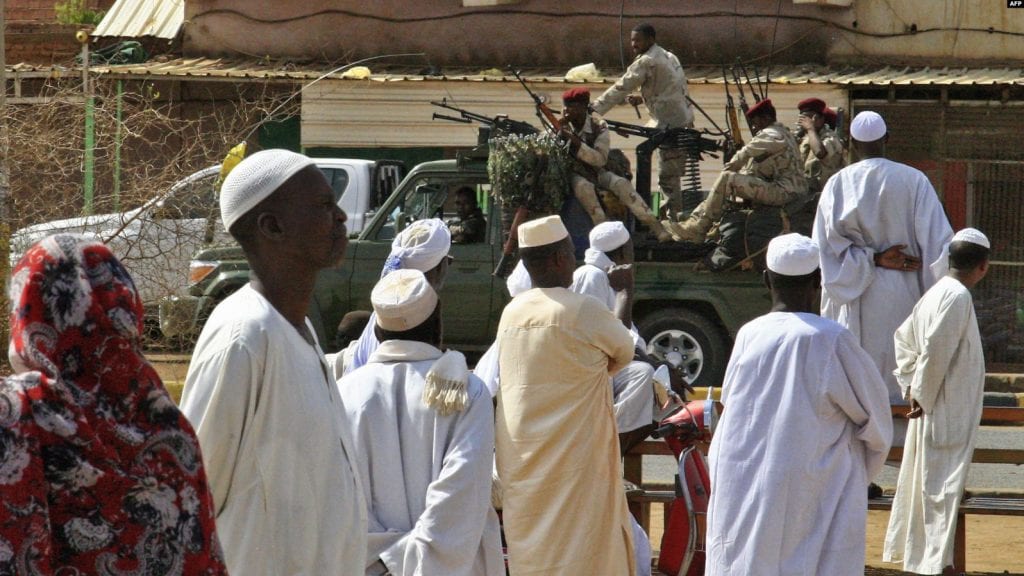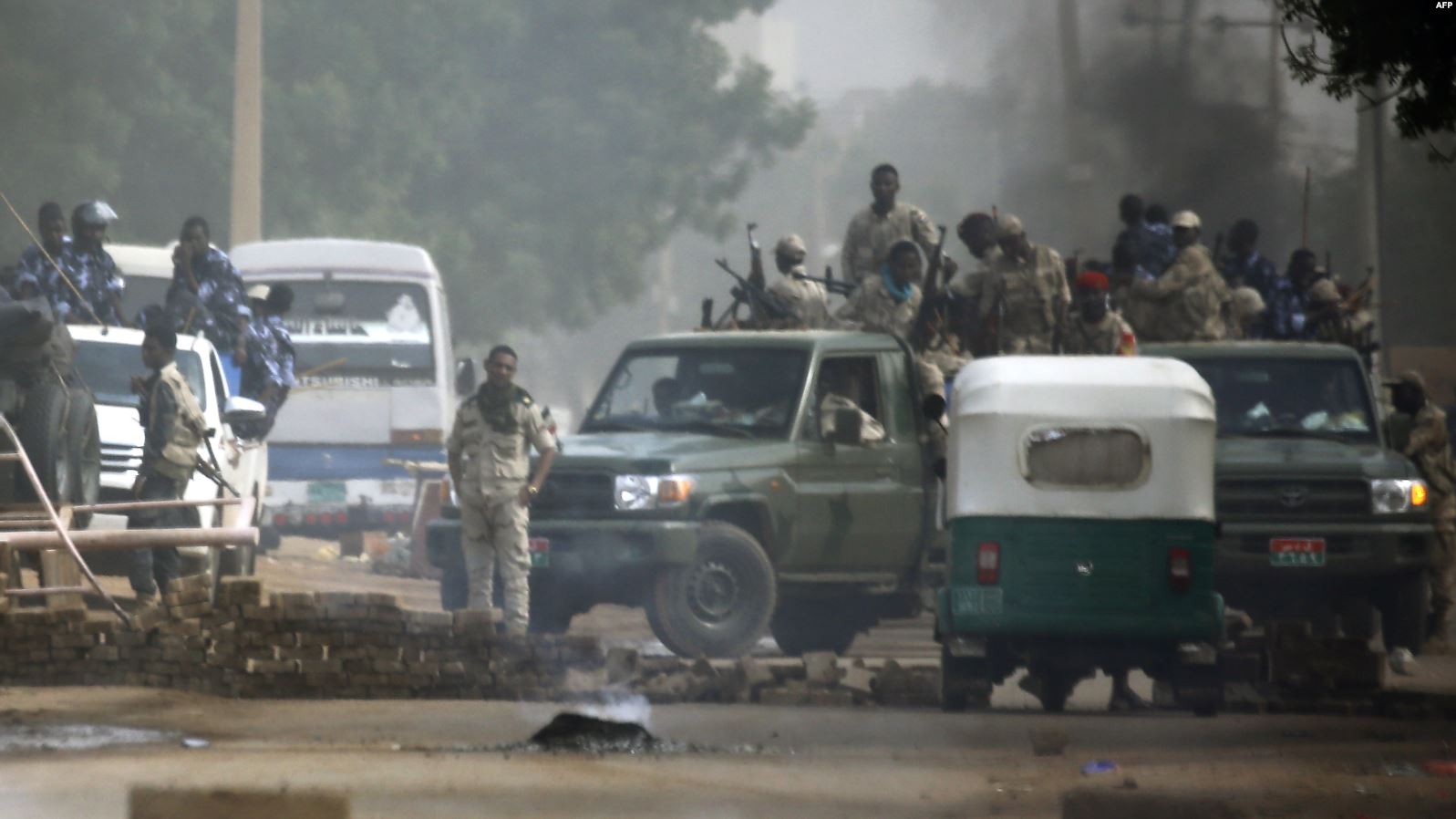Khartoum siege continues, military council divided, casualties increase
The Deputy head of the Transitional Military Council (TMC) and leader of the Rapid Support Force militia, Mohamed Hamdan Dagalo (“Himmedti”), has claimed responsibility for the deadly Monday attacks against protestors in Khartoum as the number of casualties continues to rise in the capital. Divisions within the Council, however, are emerging as the head of the military council and deputy presented diverging speeches today over Monday’s attack against protestors at the sit-in.
According to the Central Committee of Sudanese Doctors, 60 people are confirmed dead and 326 injured since the 3 June attack with many of those injured in a critical state. The actual total number of casualties, however, is expected to be much higher as voluntary rescue committees have identified 40 bodies dumped in the Nile River since the attack, the central committee reported. Eyewitnesses claim the bodies were dumped by vehicles owned by the Rapid Support Forces militia (RSF).
Security forces fired live bullets early Monday morning upon protestors at the sit-in area outside the military headquarters, clearing up the protest site that had represented the protester’s central rallying point calling for civilian rule. The near six-months protests manage to topple former dictator, Omar al-Bashir in April at the site.

Split within the TMC
Leaders of the Transitional Military Council (TMC) are presenting conflicting sentiments towards the 3 June attack. Just yesterday, TMC Head Lt.-Gen. Abdel Fattah al-Burhan announced an end to all negotiations and past agreements with the umbrella opposition Freedom and Change coalition and called for upcoming general elections. Today during a televised message, the same leader took a more conciliatory tone, praising the civilian revolution and encouraging a revival of negotiations while regretting Monday’s attack against the protestors. “We feel sorry for what happened, and our condolences to the martyrs,” the TMC leader said, “we should not let any circumstances stop us from realizing the goals of the revolution.” Burhan, incongruously, also claimed the TMC directed the public prosecutor to “investigate the incident” and called for a move towards “a legitimate authority, that would satisfy the aspirations of the Sudanese people in all their diversity.”
In stark contrast, the TMC deputy and RSF leader Lt.-Gen. Himmedti took responsibility for the current violence and accused the protestors of ‘unruliness’ during a speech to his militia marking the Eid-ul-Fitr celebrations. “We ended the rebellion [in Darfur] and now we have quelled the unruliness that was a byproduct of the rebellion [the sit-in],” he announced. According to eyewitnesses, the attacks on the ground reflect tactics used by the infamous RSF militia, many of its members wanted for war crimes in Darfur. “The indiscriminate use of bullets, the burning of tents, the prevention of ambulances to enter hospitals, harassment of women –not to mention the looting of mobile phones and other items reflect similar tactics of war led by the RSF in other areas of operation –especially in Darfur,” said political analyst Al-Bakr Hasim.*
During the same Eid speech, Himmedti stated that “citizens have to open the roadblocks themselves […] citizens have to learn from the lesson and bear responsibility for what the armed forces do [referring to the 3 June attack]. Do you think you can cut the electricity and water off from the military council?” he added. Himmedti’s reference to cutting utilities was in reference to the late May nationwide strikes that included public offices such as the state electricity and water companies, calling for an end to military rule. According to political activist Mohamed Hamed, security forces have since arrested air pilots from their homes for refusing to report to work at Khartoum International Airport.

Opposition reacts
The opposition Freedom and Change coalition are planning further civil disobedience tactics against the TMC to push for civilian rule. “Next week, we’ll begin our civil disobedience,” Mohamed Nagy Alassam, a leader of the Freedom and Changes coalition, told Al Jazeera. “The military council has cut off the internet, they cut off the telecommunication networks to cover their crimes. We promise we will unveil the military’s ugly crimes committed on the streets – from killing to rape to humiliation to fear. We will continue this revolution.”
The RSF has continued terrorising citizenry in Khartoum since Monday’s attack. On 4 June in Bahri, Khartoum North, suspected RSF killed shot dead a 14-year old, Muhanned Mohamed along the outskirts of East Nile and Hillat Kuku Streets, according to an eyewitness.

International response
The UN Security Council met yesterday at the behest of Britain and Germany but a call to condemn the killing of civilians and international support to quell the violence was blocked by China and Russia, according to news reports. Both the African Union and Troika governments (Britain, the United States, and Norway) have condemned the 3 June attacks and called for civilian rule.
United States Senator Jim Risch, chairman of the US Senate Foreign Relations Committee, took it one step further by urging “increased U.S. diplomatic efforts to ensure that regional actors, like those from the Gulf States, cease from meddling in the transition process either by publicly engaging with only the military council or providing financial support.” In a similar move, Under Secretary of State for Political Affairs, David Hale, contacted the Saudi defense ministry expressing concern over the military crackdown. Similar to the TMC, however, the U.S. response appears conflicting after U.S. Charge d’Affaires Steven Koutsis suggested during a closed meeting in Washington last week that America should align with the interests of Saudi Arabia, Egypt and the United Arab Emirates vis-a-vis Sudan, according to the Daily Beast.
It is unclear whether the diplomatic pressure worked, but eyewitnesses say that violence has reduced on Jun 5, and the crackdown in neighborhoods has ceased. However, the RSF has setup checkpoints throughout the capital, Khartoum. It is still unclear what the TMC’s plans are, and whether they are united, while tensions on the ground remain high.


